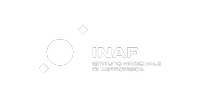Euro VO-ICE
Abstract: Astronomy has been a pioneer in the conceptualization and implementation of a science driven ‘virtual infrastructure’, essential to optimize the science return of the large infrastructures of the discipline. The concept of a Virtual Observatory (VObs) is that all the world’s astronomical data should feel like they sit on the astronomer’s desk top, analysable with a user selected workbench of tools and made available through standard interfaces across the whole range of astronomical research topics. VObs is embraced as a world-wide community-based initiative with the potential to transform and restructure the way astronomy research is done.
The European Virtual Observatory, Euro-VO, is the European implementation of this idea. The astronomical VObs is undergoing significant evolution with the beginning of its operational phase. Some activities are critical and have to be maintained to assess their evolution and prepare them for being sustained on the long term. The EuroVO-ICE project is a short (1 year) focussed project which aims at preparing all the necessary measures to continue the pioneering work of Euro-VO and sharing its concepts with other scientific disciplines, (1) by exploring the key points for long term sustainability, including the international, European, and national perspectives, and (2) by assessing how to maximize the impact of the work on the VObs development and of Euro-VO achievements by building partnership with other ‘neighbouring’ disciplines – time for this coordination is now mature thanks to projects recently selected to be supported by EU funding.
Dettagli tecnici:

